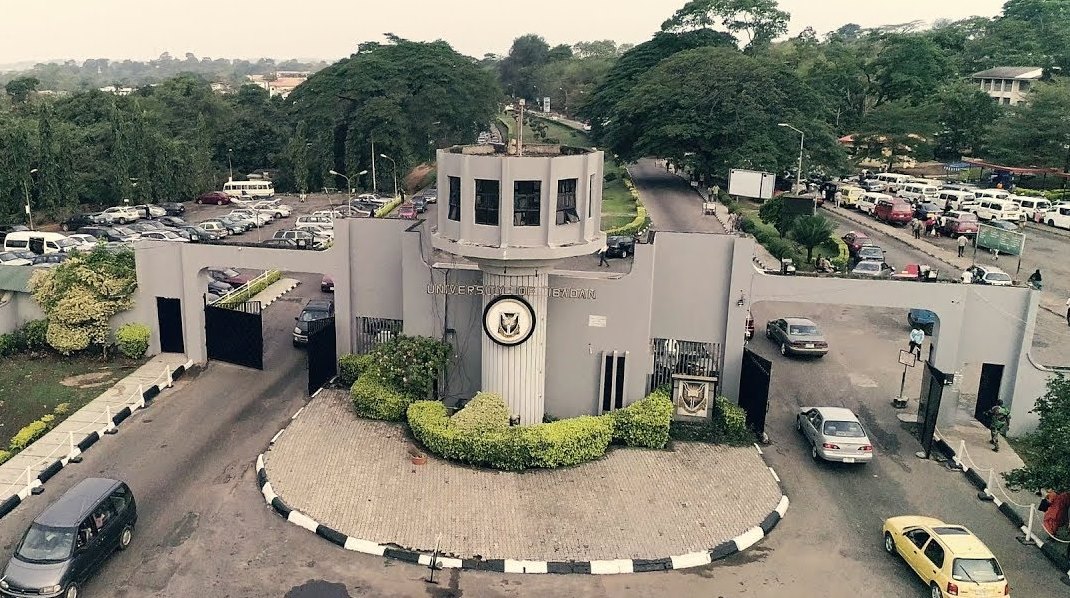Lately, the leaders of the Ibadan socio-cultural group, Central Council of Ibadan Indigenes, appealed to the President, Major General Muhammadu Buhari (retd.), to appoint Ibadan descendants as the Vice-Chancellor of the University of Ibadan and the Chief Medical Director of University College Hospital when these positions become vacant.
The CCII posits that Ibadan indigenes had been marginalised in the past when these positions were handed out, and they wanted a correction. On the long list of probable candidates for the VC position, they extracted the names of Ibadan indigenes and presented the same to the President for consideration.
It is too early to tell how this campaign will play out. Suppose Buhari settles for an Ibadan professor for all other reasons outside ancestry, that candidate’s intellectual profile will be buried under the omo wa ni e je o se sentiments organised in his favour. Worse, what the CCII has done will become a formula for every disgruntled socio-cultural group that wants to manipulate processes in favour of their son/daughter. If a non-Ibadan professor were to be appointed, that one will be resented by nativists who would see them as a usurper.
No matter what anyone thinks and feels about this blatant nepotistic canvassing by the CCII, I still want to salute their boldness in eschewing the lie that there is much to upward mobility in Nigeria than nepotism. We like to tout competence when it comes to appointing people to public posts and we have never quite acknowledged that identity politics has already been institutionalised as a form of competence as well. People are qualified by the sheer fact of which identity card they wield.
Competence (or merit) is one of the many gods we worship with our mouths but hardly with our deeds. Let us start from the same Buhari the CCII is calling to decide issues. What “competence” qualified Buhari for the presidency other than the coincidence of ethnicity and his public professions of faith? When, lately, Mamman Daura, a close relative of Buhari, said the 2023 presidency should be based on competence and not zoning formula, I wished he clarified what he understood by competence. At which point since 1983 did he discover that it mattered?
When faux pas like the CCII’s berths in the public sphere, Nigerians wedded to the political correctness monomania will quickly rise to condemn nepotism and insist that things should only be done on merit. They are correct in their assertion, but pivoting straight to that jaded argument without first inquiring why things are the way they are looks pretty naïve.
The issues around how people get qualified for public positions are not limited to socio-cultural groups like the CCII. Some years ago, the Mbaise people of Imo State rejected a Catholic Bishop because he is from Anambra State. Last year, I was at a programme in the South-West when a high-ranking religious leader mentioned that they had lobbied the governor to appoint someone of their church denomination as chairperson of the pilgrims’ board. This leader said since the inception of the pilgrims’ board, their church denomination had been serially marginalised by the more powerful churches and it was time for a correction. Some years ago, I was at a local political meeting in Ibadan where some people argued that a proposed candidate could not represent them in a short-term appointment because his father’s house was in Ibadan North, and they were Ibadan North East Local Government Area. They did not say he was not an Ibadan man; he just did not belong to the side of the fence the government carved for them. At every level of socio-political organising, Nigerians draw a borderline around themselves.
Lately, Buhari named a Rivers State indigene, Opunimi Akinkugbe, as the Ondo state ambassadorial nominee. In terms of education, expertise, and exposure, this woman stands tall. Yet, some Ondo people revolted saying she was not one of them. She had been married to an Ondo man long enough to be considered one of them, but that is not how these things work. As usual, much of the responses to Ondo people’s contention were superficial noises about competence over clannishness. Even former Bayelsa State governor, Seriake Dickson, jumped into the fray to argue against discrimination. He did not only reduce the issue to himself, he kept making this irritating allusion to “our women,” “our sisters,” “our daughters,” as if the female folk exist only in relation to him and his male peers.
All of these arguments about prioritising competence over where one comes from do not scratch the face of the problem. There are at least two things we are dealing with here every time Nigerians based the clamour for public appointment on nepotism. First is that there is no cohesive Nigerian identity. We carry the Nigerian passport, but the idea of Nigeria as a nation where all of us are citizens with equal rights and responsibilities is far too remote in the collective imagination. There is no sense of joint belonging and common destiny that ties those in Borno with those in Bayelsa.
Even the national symbols, myths, and histories that could bind us are devoid of meaning. They lack the inherent force to instigate the love of the country in us. We are all too cynical, and we are mutually distrustful of one another. Our perennially clueless and corrupt leaders have not made social relations better. People like ex-governor Dickson think that they can force a sense of collective identity on Nigerians through appointments into elite positions. They are proposing non-solutions to a fundamental problem. Appointing someone from another place to represent a community will not inspire a sense of Nigerianness. At best, it will solder a new elite class. The bulk of people who need to be Nigerians and carry forward the ideals of nationhood will still be left behind to battle their identity crisis. They will continue to retreat into their religious and tribal units where things make some sense.
The second problem is that Nigeria is so impoverished that the only means we have to social relevance is access to power. In Nigeria, the difference between life and death is not in social infrastructure and safety nets as it exists in developed countries. It is access to power. Not even who you know, but who knows you. The person who feels indebted enough to you to take your phone call and help you to mobilise state resources to fulfil the basic functions for which bureaucracies were set up. It could be as simple as getting your files moved in government offices, or getting you a job, or even fighting against the indignity that assaults your personhood every damn day.
The parochialism of those who want an Ibadan indigene as the VC or the CMD is not without reason. There is no possibility of a dignified existence or upward mobility in Nigeria if you do not know someone who knows someone that can call the throne of power up to Aso Rock on your behalf. There are no social facilities for people to climb up without leaning on the crutch of political power. The only thing that is guaranteed to work in Nigeria is stomach infrastructure, and when they start to share it, the single access card with which you anyone gets anything is where one belongs.
Power has been over-concentrated in the hands of a few principalities at the centre. State institutions barely function, and many of them are indifferent to the existence of the average Nigerian. The hope of survival that we have in our own country is to hustle for someone close to us -someone who shares our roots and also- to get us closer to power. That connection could make all the difference to social life and social death. There is no ethic of social justice and collective responsibility ruling Nigeria. It is all about individual access to power. That is why we carry our tribes and religions on our heads, and fight tooth and nail for someone within our ingroup to be appointed into public office. Until we first recognise the foundational problems, talking about “competence” is mere claptrap.



